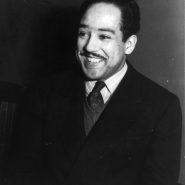When I was one-and-twenty
I heard a wise man say,
“Give crowns and pounds and guineas
But not your heart away;
Give pearls away and rubies
But keep your fancy free.”
But I was one-and-twenty,
No use to talk to me.
When I was one-and-twenty
I heard him say again,
“The heart out of the bosom
Was never given in vain;
’Tis paid with sighs a plenty
And sold for endless rue.”
And I am two-and-twenty,
And oh, ’tis true, ’tis true.
Originally published in A Shropshire Lad (1896) by A. E. Housman. Public domain.
Analysis
Housman’s “When I Was One-and-Twenty” distills the universal tension between innocence and wisdom into two brief stanzas.
The poem’s narrator recalls the words of an older, wiser man who warns against giving one’s heart away — advice that, at twenty-one, he ignores.
By the time he turns twenty-two, the lesson has become painfully clear. The progression of a single year marks a profound change in emotional understanding.
Tone and Structure
The poem’s strength lies in its simplicity. Housman employs a song-like rhythm with alternating rhymes and a steady iambic beat, echoing the cadence of a folk ballad. This musicality softens the sting of the moral, allowing readers to absorb the lesson gently.
The repetition of “I was one-and-twenty” and “I heard him say” reinforces the cyclical nature of youthful folly: each generation must learn the same hard truths for itself.
Themes of Love and Regret
At its heart, the poem explores the cost of love and the inevitability of regret. The “crowns and pounds and guineas” symbolize material wealth, which can be safely given away, while the heart represents something far more vulnerable.
The speaker’s rueful acknowledgment — “oh, ’tis true, ’tis true” — is both confession and lament. Housman captures the pain of wisdom learned too late: love’s beauty is inseparable from its sorrow.
Housman’s Poetic Style
A. E. Housman’s poetry often blends emotional restraint with lyrical grace. His diction is plain but resonant, his rhymes unforced yet memorable.
Like much of A Shropshire Lad, this poem reflects the melancholy of lost youth and the dignity of stoic acceptance. Housman’s world is one where love wounds, time heals incompletely, and beauty lies in the quiet acknowledgment of human frailty.
